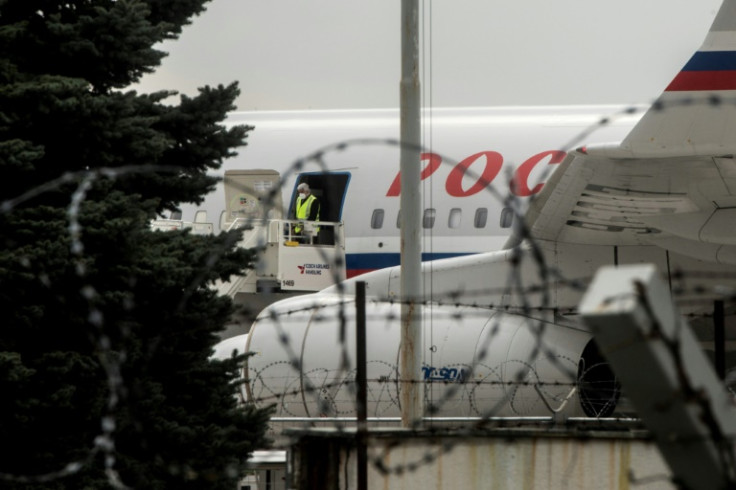EU Sanctions Russian Military Intelligence For 'Hybrid Attacks'

The EU on Monday targeted Russian military intelligence agents with its first ever sanctions over so-called "hybrid" attacks aimed at destabilising Europe, including with disinformation, cyber strikes and arson.
Western countries have accused the Kremlin of masterminding a string of incidents aimed at trying to undermine support for Ukraine as it battles Russia's invasion.
"For the first time ever, the European Council today decided to impose restrictive measures against 16 individuals and three entities responsible for Russia's destabilising actions abroad," the EU said in a statement.
Among those targeted was the Unit 29155 of Moscow's GRU military intelligence agency, which was accused of "involvement in foreign assassinations and destabilisation activities such as bombings and cyber-attacks across Europe".
The unit has been linked to attacks dating back before Russia's 2022 invasion of Ukraine, including the poisoning of defector Sergei Skripal in Britain and a 2014 blast at an ammunition warehouse in the Czech Republic.
Also sanctioned were GRU agents Denis Smolyaninov and Vladimir Lipchenko who were accused of sabotage activities in Europe, including in Latvia.
"The GRU is responsible for actively preparing explosions, arson and damage to infrastructure on (European) Union territory, with the goal of slowing down the supply of weapons to Ukraine and of creating discord," the EU said.
Other officials sanctioned were linked to Moscow's so-called "doppelganger" campaign, in which fake versions of websites for European news outlets were created to try to spread disinformation.
A Moldovan businessman and Russian official were listed for reportedly recruiting agents for operations in France in 2023.
Three individuals subjected to asset freezes and visa bans were accused of spying for Russian intelligence in Germany. including "a former parliamentary assistant" of a Bundestag lawmaker.
Beyond Europe, the sanctions also targeted people accused of spreading "Russian propaganda and disinformation on the African continent" to try to further the Kremlin's goals.
© Copyright AFP 2024. All rights reserved.





















